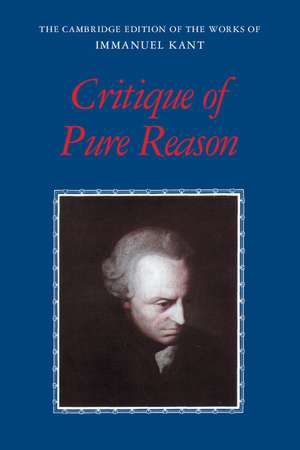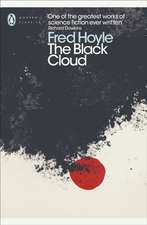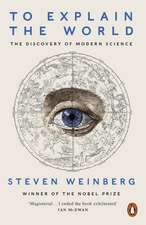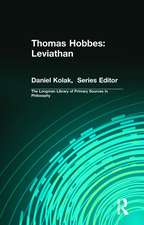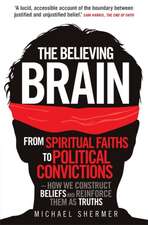Critique of Pure Reason
Autor Immanuel Kant Editat de Paul Guyer, Allen W. Wooden Limba Engleză Paperback – 27 feb 1999
| Toate formatele și edițiile | Preț | Express |
|---|---|---|
| Paperback (24) | 74.30 lei 22-36 zile | +39.13 lei 6-12 zile |
| Orion Publishing Group – 7 dec 1993 | 74.30 lei 22-36 zile | +39.13 lei 6-12 zile |
| CREATESPACE – | 76.21 lei 22-36 zile | |
| CREATESPACE – | 87.37 lei 22-36 zile | |
| CREATESPACE – 28 feb 2010 | 101.86 lei 22-36 zile | |
| Penguin Books – 28 noi 2007 | 103.39 lei 25-31 zile | +40.20 lei 6-12 zile |
| CreateSpace Independent Publishing Platform – | 114.88 lei 22-36 zile | |
| El Paso Norte Press – 9 apr 2007 | 119.36 lei 22-36 zile | |
| Dover Publications – 31 dec 2003 | 138.58 lei 22-36 zile | |
| CREATESPACE – | 139.62 lei 22-36 zile | |
| CREATESPACE – | 148.77 lei 22-36 zile | |
| – | 175.56 lei 22-36 zile | |
| CreateSpace Independent Publishing Platform – | 179.12 lei 22-36 zile | |
| – | 185.39 lei 22-36 zile | |
| – | 250.66 lei 22-36 zile | |
| Hackett Publishing Company – 30 noi 1996 | 267.07 lei 22-36 zile | +87.16 lei 6-12 zile |
| Cambridge University Press – 27 feb 1999 | 328.36 lei 22-36 zile | +68.54 lei 6-12 zile |
| A & D Publishing – 16 mar 2008 | 112.33 lei 43-57 zile | |
| Digireads.com – 10 iun 2018 | 131.90 lei 43-57 zile | |
| Alpha Editions – 11 apr 2022 | 154.09 lei 43-57 zile | |
| COSIMO CLASSICS – 30 apr 2009 | 174.46 lei 43-57 zile | |
| NuVision Publications – 11 sep 2005 | 202.95 lei 38-44 zile | |
| Maugham Press – 7 iul 2008 | 311.50 lei 43-57 zile | |
| Echo Library – 31 oct 2006 | 379.46 lei 38-44 zile | |
| Cosmopolitan Press – 28 dec 2017 | 395.78 lei 43-57 zile | |
| Hardback (5) | 186.35 lei 43-57 zile | |
| Hackett Publishing Company – 30 noi 1996 | 501.41 lei 22-36 zile | |
| Classic Wisdom Reprint – 10 apr 2019 | 186.35 lei 43-57 zile | |
| A & D Publishing – 17 mar 2008 | 208.01 lei 43-57 zile | |
| Lulu.Com – 13 iun 2016 | 258.29 lei 43-57 zile | |
| COSIMO CLASSICS – 9 mai 2009 | 285.82 lei 43-57 zile |
Preț: 328.36 lei
Nou
Puncte Express: 493
Preț estimativ în valută:
62.85€ • 68.29$ • 52.83£
62.85€ • 68.29$ • 52.83£
Carte disponibilă
Livrare economică 31 martie-14 aprilie
Livrare express 15-21 martie pentru 78.53 lei
Preluare comenzi: 021 569.72.76
Specificații
ISBN-13: 9780521657297
ISBN-10: 0521657296
Pagini: 796
Dimensiuni: 152 x 229 x 37 mm
Greutate: 1.13 kg
Editura: Cambridge University Press
Colecția Cambridge University Press
Locul publicării:New York, United States
ISBN-10: 0521657296
Pagini: 796
Dimensiuni: 152 x 229 x 37 mm
Greutate: 1.13 kg
Editura: Cambridge University Press
Colecția Cambridge University Press
Locul publicării:New York, United States
Cuprins
General editor's preface; Acknowledgements; Introduction Paul Guyer and Allen W. Wood; Bibliography; Immanuel Kant, The Critique of Pure Reason translated by Paul Guyer and Allen W. Wood; Editorial notes; Glossary; Index.
Descriere
The most accurate and informative English translation ever produced of this epochal philosophical text.
Notă biografică
Immanuel Kant ( 22 April 1724 - 12 February 1804) was an influential German philosopher[23] in the Age of Enlightenment. In his doctrine of transcendental idealism, he argued that space, time, and causation are mere sensibilities; "things-in-themselves" exist, but their nature is unknowable.[24][25] In his view, the mind shapes and structures experience, with all human experience sharing certain structural features. In one of his major works, the Critique of Pure Reason (1781; second edition 1787),[26] he drew a parallel to the Copernican revolution in his proposition that worldly objects can be intuited a priori ('beforehand'), and that intuition is therefore independent from objective reality.[b]
Kant believed that reason is also the source of morality, and that aesthetics arise from a faculty of disinterested judgment. Kant's views continue to have a major influence on contemporary philosophy, especially the fields of epistemology, ethics, political theory, and post-modern aesthetics. He attempted to explain the relationship between reason and human experience and to move beyond the failures of traditional philosophy and metaphysics. He wanted to put an end to what he saw as an era of futile and speculative theories of human experience, while resisting the skepticism of thinkers such as David Hume. He regarded himself as showing the way past the impasse between rationalists and empiricists,[28] and is widely held to have synthesized both traditions in his thought.[29]
Kant was an exponent of the idea that perpetual peace could be secured through universal democracy and international cooperation. He believed that this would be the eventual outcome of universal history, although it is not rationally planned.[30] The nature of Kant's religious ideas continues to be the subject of philosophical dispute, with viewpoints ranging from the impression that he was an initial advocate of atheism who at some point developed an ontological argument for God, to more critical treatments epitomized by Schopenhauer, who criticized the imperative form of Kantian ethics as "theological morals" and the "Mosaic Decalogue in disguise",[31] and Nietzsche, who claimed that Kant had "theologian blood"[32] and was merely a sophisticated apologist for traditional Christian faith
Recenzii
The text rendered by Pluhar is the work of an expert translator. . . the virtues of his text are manifold; his translation exhibits an incontrovertible mastery of both English and German. Equally important is the fact that Pluhar has given the original a very close read during the act of translating. . . . Pluhar consistently resists the tendency to translate woodenly word-for-word. . . . In point of fact, accuracy of translation stands in no direct relation to literalness; it is much more a product of meticulous textual reading and skilful writing, and in this respect Pluhar has no modern equals in English Kant translation. --James Jakob Fehr, Kant-Studien
